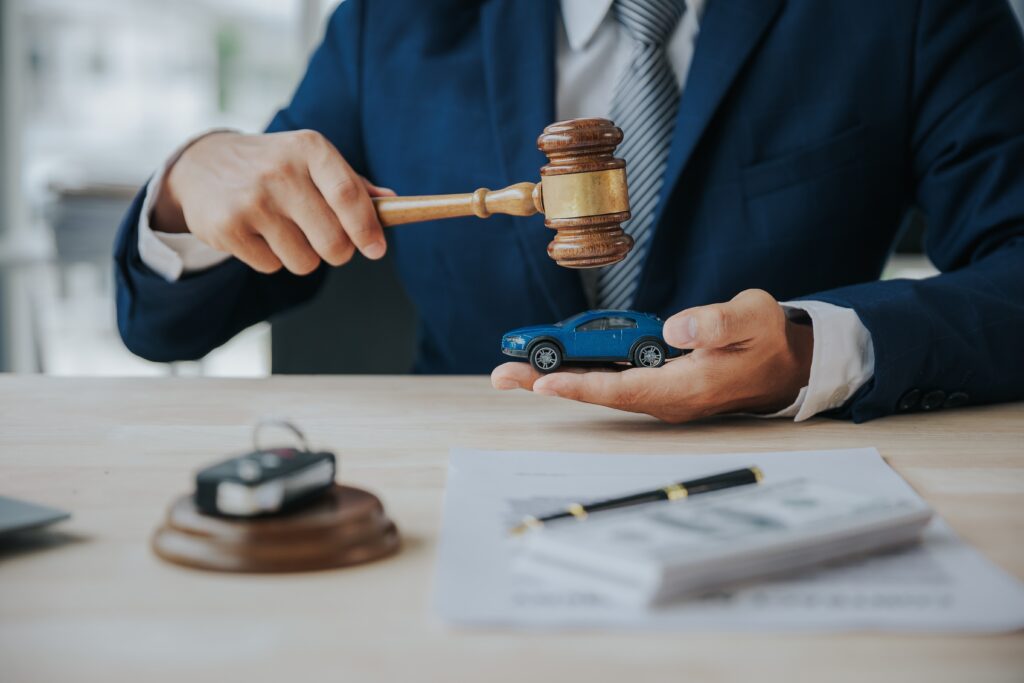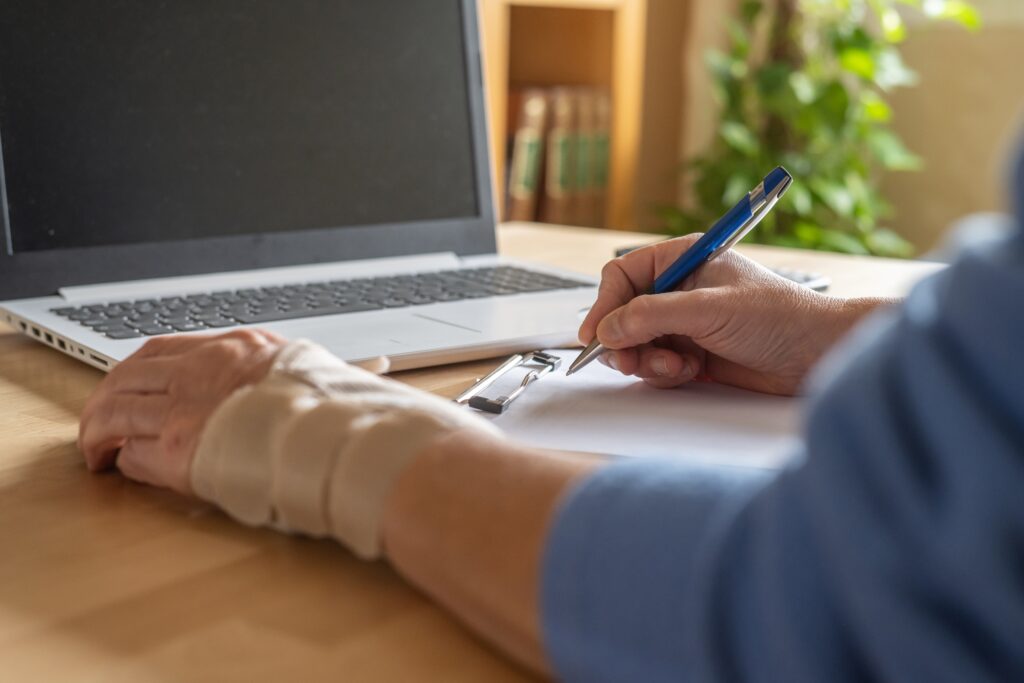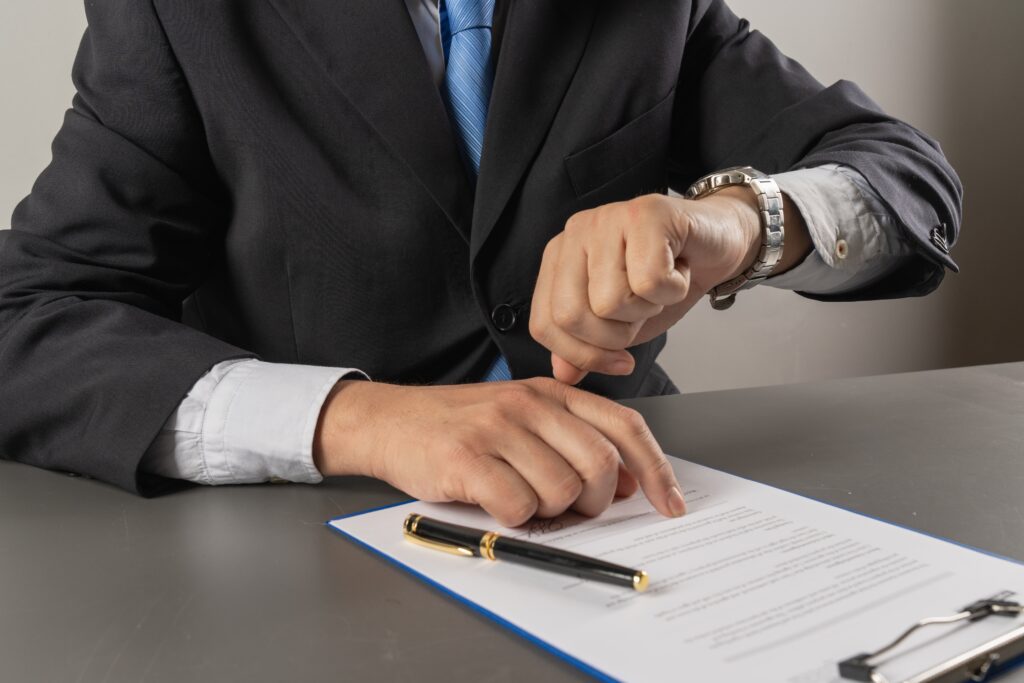
Car accidents in Dallas can happen in the blink of an eye, whether you're navigating the streets of Downtown, driving along the LBJ Freeway, or heading through the intersections near Deep Ellum. The aftermath of a collision often leaves you grappling with more than just vehicle damage – there are medical bills, lost income, and the emotional toll to consider. If you're pursuing a car accident claim, gathering the right evidence is the cornerstone of building a strong case. Without it, proving liability and the extent of your damages becomes a steep uphill battle.
Dallas has its own unique challenges when it comes to car accident claims. Every accident has its own story, from the heavy traffic on I-35E to the unpredictable weather that can make roads treacherous. But one thing remains constant: the need for compelling evidence to support your claim.
Whether you're dealing with an uncooperative insurance company or a driver who disputes fault, the evidence you collect can make or break your case. A Dallas car accident lawyer will identify, preserve, and present this evidence to maximize your chances of success.
Schedule A Free Case Consultation
The Police Report
Police reports can make or break a car accident claim. This official document provides a detailed account of the accident, including observations made by the responding officers, witness statements, and any citations issued at the scene. For instance, if you were involved in a collision near the intersection of Greenville Avenue and Mockingbird Lane, the police report might include details about traffic conditions, weather, and even the demeanor of the drivers involved. Such specifics can make a significant difference when attempting to establish liability.
A Dallas car accident attorney will use the police report to identify discrepancies in the at-fault driver's account or to corroborate your version of events. If the officer noted that the other driver was speeding or failed to yield, this information can be compelling evidence of negligence. However, it's important to remember that police reports are not infallible. If the report contains errors or omissions, an attorney will take steps to address these issues, such as obtaining supplemental statements from the officer or additional witnesses.
In some cases, police reports also include diagrams of the accident scene, which can visually demonstrate how the collision occurred. An accident on Central Expressway during rush hour, for instance, might involve multiple vehicles, and a diagram can clarify the sequence of events. By presenting this visual evidence alongside other documentation, your attorney can build a stronger case for liability.
Surveillance Footage
Surveillance footage has become an increasingly valuable tool in car accident claims, particularly in urban areas like downtown Dallas or the Oak Lawn neighborhood, where cameras are prevalent. Footage from traffic cameras, nearby businesses, or even private residences can provide an unfiltered view of the events leading up to the collision. This evidence is especially useful in disputes where both parties offer conflicting accounts of what happened.
If you were rear-ended at a stoplight, surveillance footage might show the at-fault driver texting or failing to brake in time. A Dallas car accident lawyer will know how to obtain this footage promptly, as many cameras overwrite their recordings within days or weeks. Acting quickly to secure this evidence can be the difference between a successful claim and a prolonged legal battle.
Dashcam recordings also fall under this category of evidence. If your vehicle or that of another driver involved in the accident had a dashcam, the footage can provide a clear and indisputable record of the collision. Whether capturing a driver running a red light or swerving erratically on the Dallas North Tollway, dashcam footage can be a game-changer in proving liability.
Witness Testimonies
Eyewitness accounts can be incredibly persuasive when establishing fault in a car accident case. Witnesses who observed the accident unfold can offer an unbiased perspective, particularly if they were not directly involved in the collision. For instance, a pedestrian crossing the street near Bishop Arts District might have seen the at-fault driver speeding or ignoring a stop sign. Their testimony can corroborate your account and strengthen your claim.
A Dallas car accident lawyer will interview witnesses to gather detailed statements about what they saw, heard, and even smelled at the time of the accident. These statements can counter any false claims made by the opposing party or their insurance company. In addition, witnesses can testify in court if your case goes to trial, providing a human element that complements the physical evidence.
It's also worth noting that witness credibility is reliant on how their testimony is received. A lawyer will assess factors such as the witness's proximity to the accident, their ability to recall details, and whether they have any potential biases. A witness waiting at a nearby bus stop on Ross Avenue might be deemed more reliable than someone who only heard the crash from inside a building.
Physical Evidence
Evidence from the accident scene provides tangible proof of how the collision occurred and who was at fault. This evidence includes debris, skid marks, vehicle damage, and road conditions. If you were sideswiped, the damage to your car's side panel can indicate the point of impact and the direction of the other vehicle.
A Dallas car accident lawyer will document this evidence through photographs, measurements, and industry expert analysis. Skid marks, for instance, can reveal whether the at-fault driver attempted to brake before the collision, while debris patterns can indicate the angle of impact. In some cases, a lawyer might enlist accident reconstruction specialists to create a detailed analysis of the crash, which can be presented in court or during settlement negotiations.
Weather and road conditions also fall under the category of physical evidence. If the accident occurred during a rainstorm on LBJ Freeway, slippery roads might have contributed to the collision. However, this does not absolve the at-fault driver of liability. A lawyer will argue that the driver should have adjusted their speed and behavior to account for the hazardous conditions, using the physical evidence to support this claim.
Digital Evidence
Electronic evidence has become a powerful tool in car accident claims. Cell phone records can prove whether the at-fault driver was texting or making a call during the collision. If a distracted driver hit you on Preston Road, a Dallas car accident lawyer can subpoena their phone records to establish negligence.
Social media posts can also serve as evidence. If the at-fault driver posted about drinking at a bar in Deep Ellum shortly before the accident, this can support a claim of impaired driving. Similarly, your own social media activity can be scrutinized, so it's important to avoid posting anything that might contradict your claim or downplay your injuries.
Vehicle data from onboard systems, such as event data recorders (EDRs), can provide additional insights into the accident. These devices, often called "black boxes," record information such as speed, braking, and steering inputs. If the at-fault driver's EDR shows they were speeding or failed to brake before the collision, this data can be used to prove liability. A lawyer will know how to access and interpret this information, adding another layer of evidence to your case.
Injury Documentation

Seeking medical attention immediately after a car accident in Dallas is vital in building a strong personal injury claim. Even if you feel fine right after the accident, underlying injuries like concussions or internal bleeding may not present symptoms immediately. A thorough medical evaluation creates an official record of your injuries, which can later serve as compelling evidence for your claim.
Visiting a reputable medical facility right after the crash, such as Baylor University Medical Center or Parkland Memorial Hospital, ensures precise documentation of your injuries. These records will include diagnostic tests, physician notes, and prescribed treatments, all of which are critical in proving the severity and cause of your injuries. Without this documentation, insurance adjusters may argue that your injuries were pre-existing or unrelated to the accident.
A Dallas car accident attorney will rely on these medical records to establish a direct connection between the accident and your injuries. They will also use the records to counter any attempts by the opposing party to downplay your injuries or suggest that they resulted from other causes. You strengthen your case and protect your right to fair compensation by seeking immediate medical care.
Consistent Medical Records
Consistency in your medical records is critical when pursuing a car accident claim in Dallas. Insurance companies often scrutinize these records for discrepancies that can weaken your case. For example, if you initially report neck pain but later claim back pain without documented updates from your healthcare provider, the opposing party may argue that your injuries are exaggerated or unrelated to the accident.
To avoid such pitfalls, you should report every symptom to your doctor, no matter how minor. Follow all prescribed treatments, including physical therapy or follow-up appointments, as these actions demonstrate your commitment to recovery. A Dallas car accident lawyer will advise you on maintaining a consistent narrative in your medical records, ensuring that your injuries are accurately documented throughout your treatment journey.
In cases where injuries evolve or new symptoms arise, it's essential to update your medical records promptly. For example, if you initially experienced whiplash but later developed chronic headaches or mobility issues, these changes must be documented by a medical professional. This evolving documentation will help your attorney argue for additional compensation to cover long-term medical expenses or diminished quality of life.
Professional Witnesses
While eyewitnesses provide valuable firsthand accounts, professional witnesses add credibility and expertise to your claim. In Dallas, where car accidents on highways like I-635 often involve complex factors, professionals such as accident reconstructionists and medical experts can provide insights that lay witnesses cannot.
An accident reconstructionist might analyze skid marks on the road, vehicle damage, and traffic patterns to determine how the collision occurred. Their findings can corroborate your version of events, particularly in cases where the at-fault driver disputes liability. For instance, if you were rear-ended on Interstate 30 during rush hour, the reconstructionist can demonstrate that the other driver failed to maintain a safe following distance.
On the other hand, medical professionals can testify about the extent of your injuries and their impact on your life. If you suffered a spinal injury in a crash on Harry Hines Boulevard, your doctor can explain how the injury was directly caused by the accident and why it requires ongoing treatment. A Dallas car accident lawyer will work closely with these professionals to build a comprehensive case that addresses both liability and damages.
Securing Evidence Early: A Time-Sensitive Process

Time is of the essence when collecting evidence for a car accident claim. Surveillance footage may be overwritten, witnesses' memories can fade, and physical evidence might be cleaned up or deteriorate. Acting quickly to preserve this evidence is vital for building a strong case. Whether your accident occurred on Skillman Street or near White Rock Lake, a Dallas car accident lawyer will act promptly to gather and secure all available evidence.
In addition to collecting evidence, a lawyer will also anticipate challenges from the opposing party. The at-fault driver's insurance company might argue that a prior incident caused your injuries or that the accident was unavoidable due to road conditions. By presenting a comprehensive body of evidence, your attorney will counter these arguments and demonstrate that the other driver's negligence was the primary cause of the collision.
Establishing liability through evidence is a meticulous process that requires a strategic approach. From police reports and surveillance footage to medical records and digital data, each piece of evidence plays a vital role in proving fault and securing the compensation you deserve. By working with a skilled Dallas car accident lawyer, you can build a compelling case that holds the at-fault driver accountable for their actions.
A Skilled Dallas Car Accident Attorney Can Obtain the Evidence You Need
Please don't hesitate to contact a Dallas personal injury lawyer so they can start gathering the proof you need to win your case. An attorney is standing by to provide you with a free consultation to outline your next steps.
